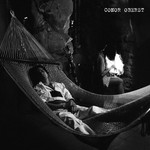Conor Oberst
Studio Album by Conor Oberst released in 2008Conor Oberst review
Constant searcher Conor Oberst
This performer constantly emerges on the scene with new projects and wonderful albums for more than fifteen years. Mostly credited for his leadership of Bright Eyes, Oberst also fronted such commands as Commander Venus, Desaparecidos and Park Ave, simultaneously recording as the guest performer on different rock releases. The same time, he worked as a solo artist on his independent label Saddle Creek Records. Conor went on a solo stardom long time ago - at the age of thirteen, when the majority of his peers were busy with schooling and entertaining, the artist was creating his debut Water. Often mentioned as the second Bob Dylan for his dark and thoughtful texts with memorable tunes, Oberst did not stop his creative search for all these years - he tried several musical genres, from punk rock to indie, while his lyrics varied from introspective soulful revelations to the sharp political satire. Oberst did not finish the search even after the formation of Bright Eyes - recently he gathered the Mystic Valley Band and recorded the Conor Oberst album - his first solo attempt for about eight years. As for the music, this disc can be called the follow-up of the latest Bright Eyes release Cassadaga, which was remembered by the listeners for the hit Four Winds. However, the new disc by Oberst if far more than anything he did before.
The long way to happiness
The whole disc Conor Oberst is filled with two dominating motives - the theme of traveling and search for happiness. Oberst's lyrical character gets the redemption from the problems in the way - the artists piercingly sings about it in the folk-track Moab. Such choice by the singer is no surprise as he made a trip to Mexico in order to record this work - and this trip definitely influences him during the labor. The same topic of the road, but this time also in music, emerges in the fast-tempo tunes with the country rock elements NYC-Gone, Gone and I Don’t Want To Die (In A Hospital), the last one noticeable for its thrilling piano arrangements. Both songs are full of the happiness of free traveling, while their rhythms remind of the galloping horses and cowboys of the Wild West. The travel as the redemption is also described in the album opener, the acoustic track with the minimal percussion Cape Canaveral, on which Oberst sings in a trembling voice about the Moon flight of 1969. The romantic melody Sausalito tells about the pleasure of floating along the river in California. However, even this album bares the shade of the artist's everlasting pessimism. The song titled Danny Callahan narrates about the rough interference of the reality into the world of dreams - this sorrowful tune is devoted to the seriously ill child. Conor Oberst is closed by the dark acoustic track Milk Thistle, in which Conor sings about the slow and inevitable movement of a human to death - in this case, the song is about an alcoholic, who dies of cirrhosis.
A lighter sight at life on Conor Oberst
From the first sight, it may seem that the new disc of Conor Oberst does not differ from his works in the lineup of Bright Eyes, but it is an illusion. After finishing Cassadaga, the artist headed on a trip along the USA, and later moved to Mexico. In the way, Oberst noticeably grew up as the lyricist - his texts are not that strictly autobiographical as his Bright Eyes attempts, while the sharp and hypertrophied dark perception of reality is diluted with the splashes of happiness and hope. Besides, the artist's texts acquired a more philosophic slant - no doubt, the Mexican folklore and mystical roots played its role - as the disc Conor Oberst was recorded in the legendary town of Tepoztlan, where the Aztec god Quetzalcoatl was born. The inspiration by spiritualism can be also traced through the title of the new collective by Oberst - Mystic Valley Band, which easily brings to mind the allusion to Carlos Castaneda's books. Oberst stopped concentrating on his sorrows and managed to take a different look at the world, which contributed to the atmosphere of the long-play. May be, that was the reason of self-titling the disc - as traditionally artists release the debut attempts under their name. Labored in the airs of country rock of 70's, Conor Oberst symbolizes the metamorphosis of the musician, his wish to begin from the blank page. No wonder, as in the recent interviews he stated, that he finally found the inner harmony he had been striving for many years.

